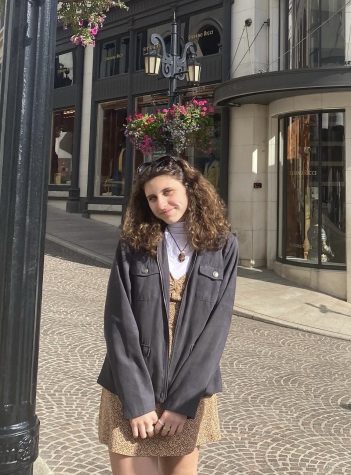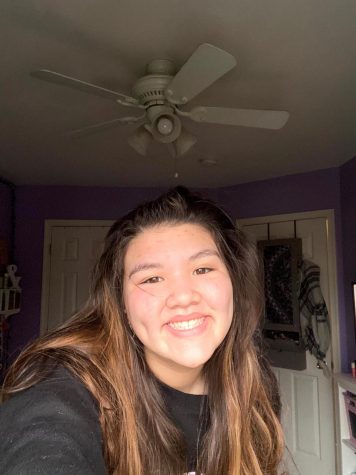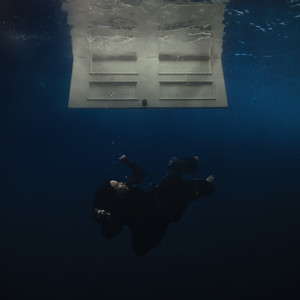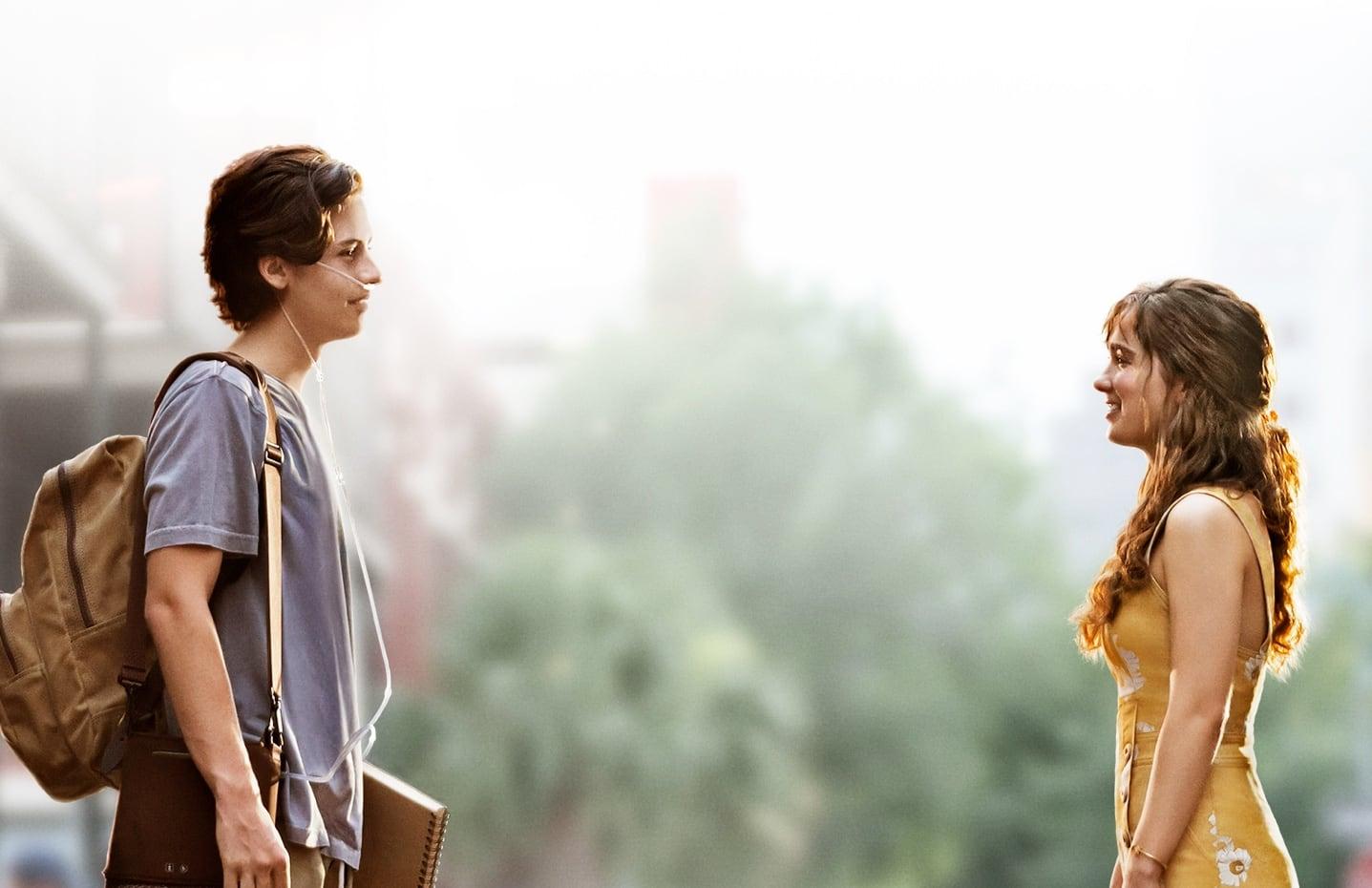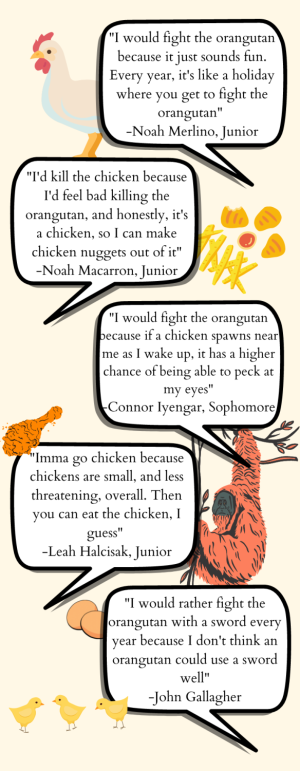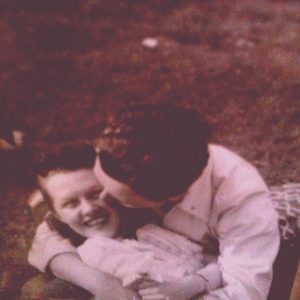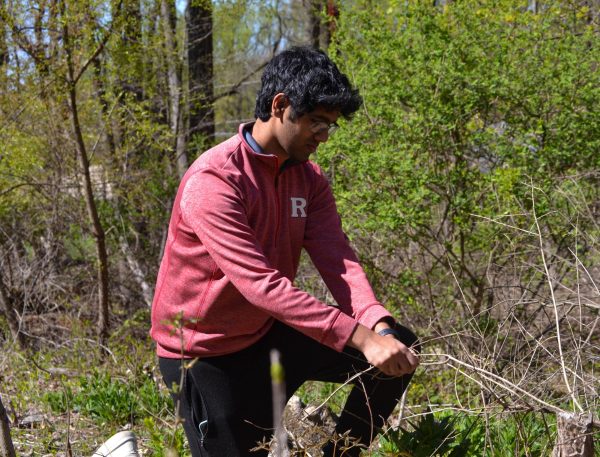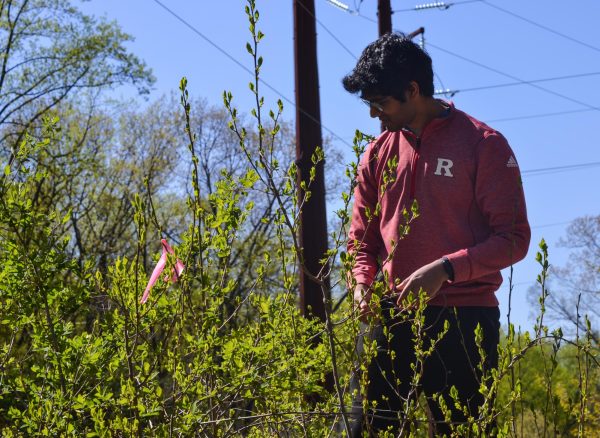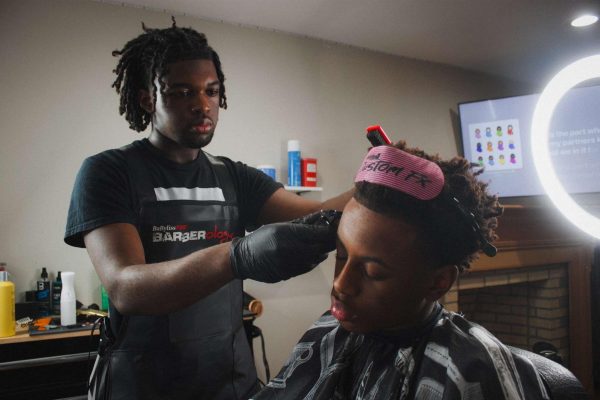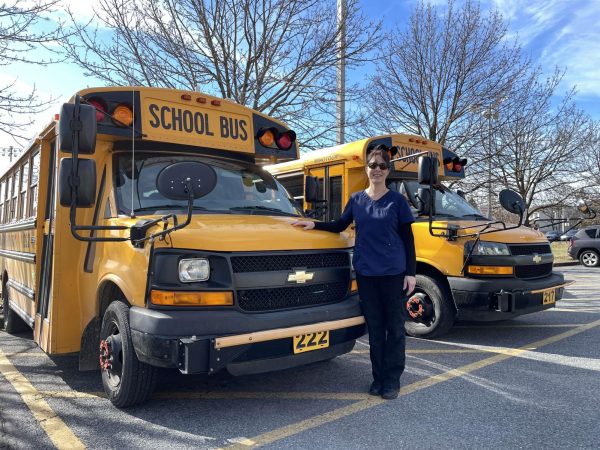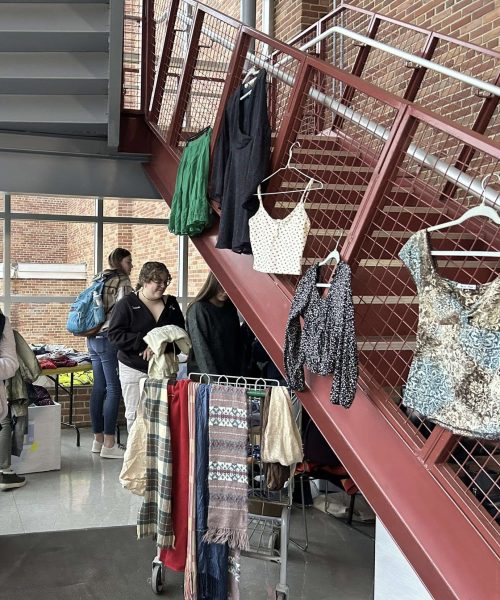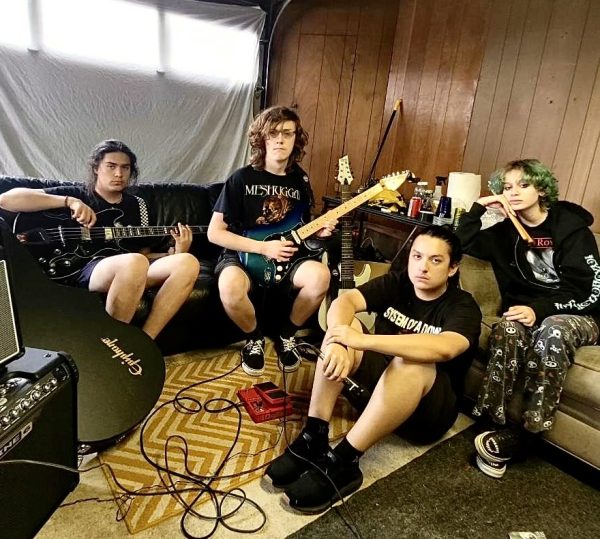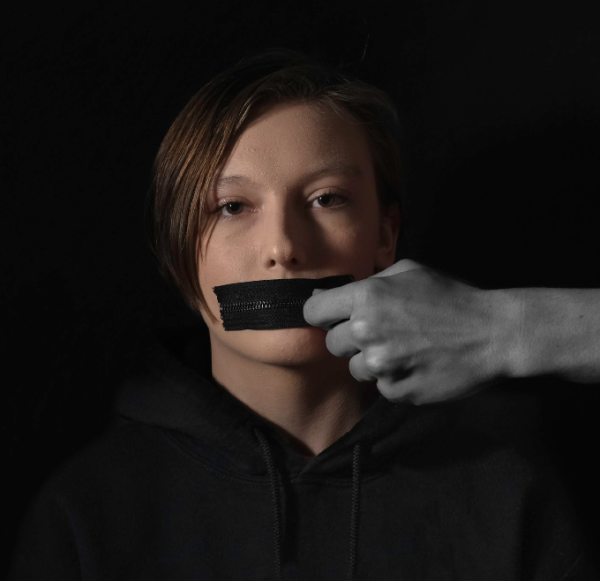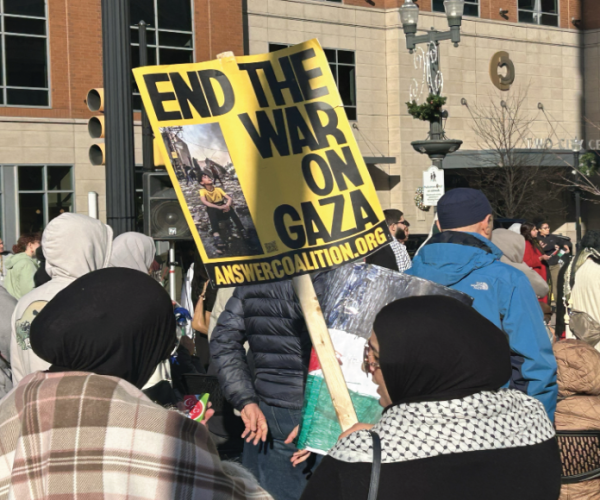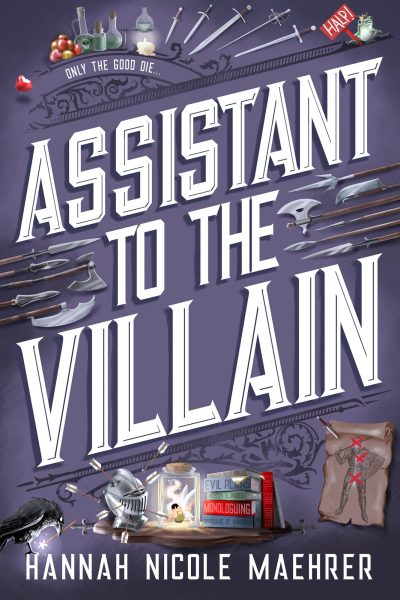EHS students reflect on working through the pandemic
May 4, 2021
With not much to do but sit at home and watch Netflix, some students turned to employment to dig them out of boredom in the midst of the pandemic.
For the past six months, junior Maddy Folkes has spent her time in a food truck, working for The Flying V, a restaurant that specializes in Canadian poutine. The truck travels to different venues and festivals, bringing The Flying V to customers around the Lehigh Valley. Folkes was initially hired to work in their restaurant on East 3rd Street in Bethlehem; however, as coronavirus worsened and in-person dining was restricted, Folkes was transferred to work on the truck instead, although she occasionally works in the restaurant as well.
Maintaining a six-foot distance proved tricky for customer service, however, The Flying V found a way around it.
“They will get there and we use a hockey stick, because we’re Canadian,” Folkes said. “We put their food in a bag and put it on hockey sticks so that we’re six feet away from customers. It’s kind of funny to see my 5’2” self with a hockey stick trying to maneuver it.”
While Folkes is able to work around a six-foot distance with customers, it’s not as easy for some other businesses.
Senior Kayla Rodriguez works at Urban Air Adventure Park. Equipped with go-karts, rock walls, trampolines, and rope courses, it’s inevitable that employees will come in contact with customers. Urban Air opened in the midst of the pandemic, starting the business off to a slow start. Although the maximum capacity has been cut from 600 to 350 customers, keeping the equipment in the building safe and COVID-compliant is still a large feat.

“We have to do a lot more extra cleaning. So we have go-karts where I work, and people get mad because the wait in line is so long, but after every ride we wipe down the go-karts and we do have harnesses, and climbing walls, and a zip line that we have to spray those down with sanitation spray after every person,” Rodriguez said. “During closing, like if we close at eight, we will stay until nine, or even like 10 or 11, just sanitizing everything making sure everything’s clean so nobody gets sick.”
Businesses across the country attempt to create the safest environment for employees and customers — taking every precaution necessary to stop the spread.
Senior Rachel Knappenberger has been working consistently with the Lehigh Valley Eye Center as a file clerk since September of last year. As a medical facility, the center can not shut down in case of an emergency, so members of staff have to work extra hard to promise safety — even if that means burning hand sanitizer.
“There is hand sanitizer everywhere. [It] burns because it has to be very sanitary and make sure it gets all the germs. I have paper cuts from working with paper and the hand sanitizer leaves the cuts there,” Knappenberger said. Commenting on another COVID procedure, she said, “After every patient, the rooms have to be thoroughly cleaned, [and] it’s definitely a lot of cleaning and a lot of making sure everything is sanitary all the time.”
Also working with extreme sanitary conditions, is junior Sadie Dallas. She works at the Playa Bowls in the Promenade for a year and a half. Completing a variety of tasks from manning the register to crafting smoothies, Dallas is familiar with the usual routine of an employee at the healthy restaurant. Alterations to ensure safety include: an employee count drop from three to five, a daily temperature check and a requirement to wear face masks. The new procedures also extend to customers at the restaurant.
“They put up a plastic shield around the register and now and if someone needs extra napkins or utensils, they are supposed to ask us so that they aren’t touching a bunch of stuff,” Dallas said. Further demonstrating the safety measures, she said, “We also always wear gloves and the prep area and equipment gets wiped down throughout the day.”
Dallas experienced what it is like to have a COVID scare when someone from her work had symptoms and was tested. Unclear of the results from the test, Dallas remembered the restaurant closing for a day so professionals could deep clean the entire interior. Since then, there have been a few people to take off because of exposure, but no breakouts. She explained that when an employee is sick or takes time off, they “cover for each other” and the large amount of workers make it easier to do so.
“Because Playabowls has a lot of employees, there are a lot of people who aren’t scheduled to be working so they will normally cover.” She says. “They have always been hiring and always accepting applications for new people. I know they still are hiring people.”
As coronavirus cases were growing in the past months, Pennsylvania governor, Tom Wolf, sent out a wave of restrictions for businesses in order to cut down the spread. These restrictions were put in place on Dec. 12, and lasted until Jan. 4. According to Dr. Rachel Levine, at the time there had been, “more than 37,500 cases among children ages five to 18, yet 9,500 of those cases occurred in the past two weeks.” These efforts to stop the spread included the closing of indoor dining, gyms, and the shut down of entertainment businesses, such as movie theaters, museums, and concerts.
While the shut down of these businesses did not affect essential establishments, such as medical offices, places such as Urban Air were hit heavily with the shutdown’s effects.
“We did get unemployment, but my manager that owns the place, it really affected him… He’s gonna lose all of that money for the next three weeks, and if he would have extended the lockdown we would never have returned to work,” Rodriguez said. “We would have just shut down, so it does get annoying if we do shut down again. I don’t know how much longer we can keep up.”
Medical businesses, such as the Lehigh Valley Eye Center are starting to get back to normal with client volume because people are beginning to feel safe enough to return for previously canceled appointments.
“There’s a lot of people. The waiting rooms are full — yes there is social distancing with the seating — but it’s a little but fuller than it should be. We are pretty much back at full capacity, which is bad,” said Knappengerger. “At least I don’t interact with it and it’s pretty back to normal, but with masks.”
On the other hand, customers that would usually go out to eat are enjoying the convenience of online ordering and the safety of their homes, rather than taking the trip out. Dallas noticed the increase in online orders as a result at Playa Bowls.
“There are definitely less customers coming in the store. We will still get orders from Grubhub pretty frequently,” said Dallas. “There used to be so many people at Playa Bowls. Before COVID, there were lines out the doors. The store is still pretty busy on weekends but not like it was before the pandemic.”
Along with company managers, employees have had adjustments made with their pay and hours due to COVID. Dallas works less due to new procedures but fortunately still receives the same hourly pay.

“Before, I would almost always work on Saturday and Sunday but the past few weeks I’ve worked, it’s only ever been on Sundays or Saturdays, not both,” said Dallas. “I’m definitely making less just because I don’t work as much now.”
Experiencing a similar change with hours, Folkes has been dealing with inconsistent working hours due to complications with the pandemic.
“Other than hours being up in the air so I don’t have like a set amount of hours it’s kind of just they make a schedule, and being one of the younger students, I get kind of pushed off the end.” said Folkes. “Just hours get cut and it’s a little less stable.”
Few employees, such as Rachel Knappenberger, have found light in the current dark circumstances and benefited from working during a pandemic. Because she works for an essential medical establishment, Knappenberger received the vaccine with the rest of the first wave just a couple weeks ago.
“I am taking off today because I got my second dose of the COVID vaccine yesterday. I woke up at 1 a.m. this morning and was aching all over. I am starting to feel a lot better,” said Knappengerger. “I’ve been so grateful with my job that I got the COVID vaccine because I was part of 1A of the distribution.”
Overall, going out to work is seen as a sanctuary for a lot of teens and adults, as it is one of few ways to distract themselves from the tragic events taking place out in the world. Even with extreme safety and sanitary precautions, many high school students are still able to find joy in their job.
“Honestly, I enjoy my job. It gives me a reason to go out,” said Knappengerger. “I wanted to start working in the first place because it was a way to get out of the house because I wasn’t leaving the house at all.”

